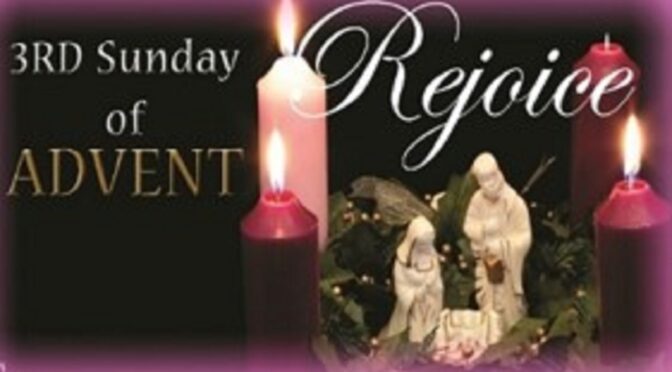Contents
Introduction
John, in his own style and language, presents further guidance on how to prepare for the celebration of the commemoration of the birth of Jesus the Christ—the Anointed One of God, hence, the saviour. The Pharisees needed to know with precision the identity of John the Baptizer so as to ascertain if he is the Messiah they were awaiting. The Jews who sent people to interrogate John the Baptist are the Jewish authorities mostly concerned with ritual purifications. The Pharisees became more confused when John the Baptizer declared he was neither Christ, Elijah, nor the Prophet. In fact, the Jews expected more people to be associated with the advent of the Messiah. This Sunday Gospel is the Johannine version of Mark 1:1–8, the Gospel for the Second Sunday of Advent (B). It is a further presentation of John as the forerunner of Jesus.
The mission of the Light
The First Reading from Isaiah outlines the functions of the messiah. In Luke 4:16b-20, we read that as Jesus entered the synagogue, as his custom was, on the Sabbath, “he stood up to read, and he was given the book or scroll of the prophet Isaiah, and unrolling the book, he found the place where it was written. The Spirit of the Lord is upon me, for this he has anointed me: to bring the Good News to the poor he has sent me; to proclaim liberation or freedom to the prisoners; to the blind the recovery of sight; to send the oppressed away or free; to proclaim the year acceptable to the Lord. He rolled up the book. And he gave it back to the attendant, sitting down. And the eyes of everyone in the synagogue were fixed on him.” It is in this Isaian passage that Jesus presents himself at the beginning of his mission. The essence of Jesus’ messianic work is expressed in the phrase ‘to set free’ (Greek: aphesis). This means Jesus will do what the nations have failed to do. It makes the proclamation messianic, not merely prophetic, because Jesus does not just proclaim the message; he brings deliverance, and he is the message of the Father. This is why the commemoration of the birth of Jesus arouses immense joy in and among Christians. What the nations could not do, Jesus will achieve. The peace and justice that civil and religious leaders have failed to achieve will be accomplished by Jesus. As recorded in Isaiah 11:1–11, Jesus, the shoot that springs from the stock of Jesse, on him will rest the spirit of the Lord, the spirit of wisdom and insight; the spirit of counsel and power; and the spirit of knowledge and of the fear of the Lord. His judgment will not be based on appearance, and his verdict will not be founded on hearsay. Integrity is the loincloth around his waist, and faithfulness is the belt around his hips. He will stand as a signal for the people, and his reign will not have an end. In his day, justice shall flourish and peace till the moon fails (cf. Ps 71). Is our preparation directed towards these ends?
Conclusion – Witnessing to the Light
Like John the Baptist, we should all be witnesses to the light, which is God himself. The verb to bear witness (Greek: martureō) means to see or know by personal presence; to have direct cognizance of something or someone. Therefore, we are witnesses to the God who is Light because we have all seen, known, and experienced this Light in various ways. During this year, God manifested his light to us in various forms and in various circumstances. We all experienced this Light in our families, places of work, as individuals, and as a community. We have many reasons…
FOR DETAILS, GET YOUR OWN COPIES OF THE BOOK “THE WORD OF LIFE: SUNDAY REFLECTIONS” (vols. I and II)!! The reflection for the 3rd Sunday of Advent, Year B is found on vol. II pages 18–24. Happy reading!
For details on how to get it, contact the author on this link: https://m.me/uchennabiblia?fbclid=IwAR2yeg4a6sDGBp9QGkIvKj6FSADumMokN6lshdE0zuo-JHs6qOmlhA7jyHo or email me at: postmaster@uchennabiblia.com or simply send an SMS on 08116100926, and I will get back to you.

